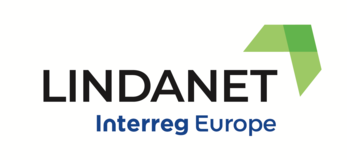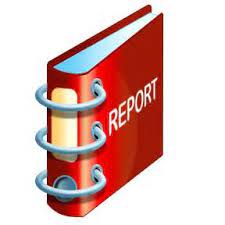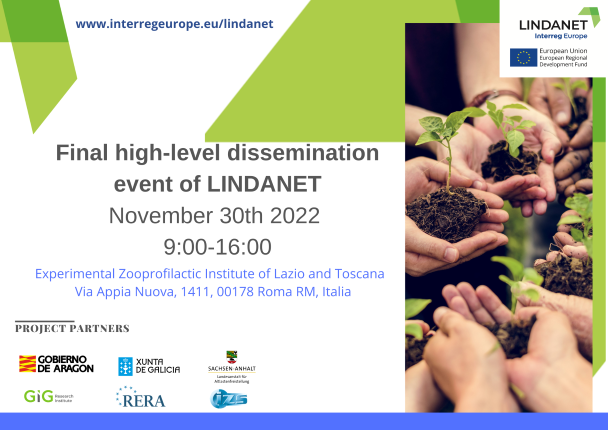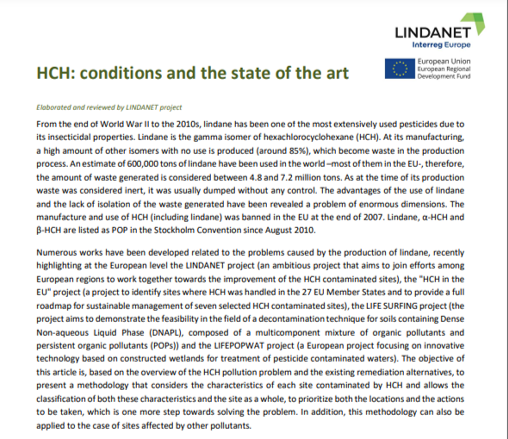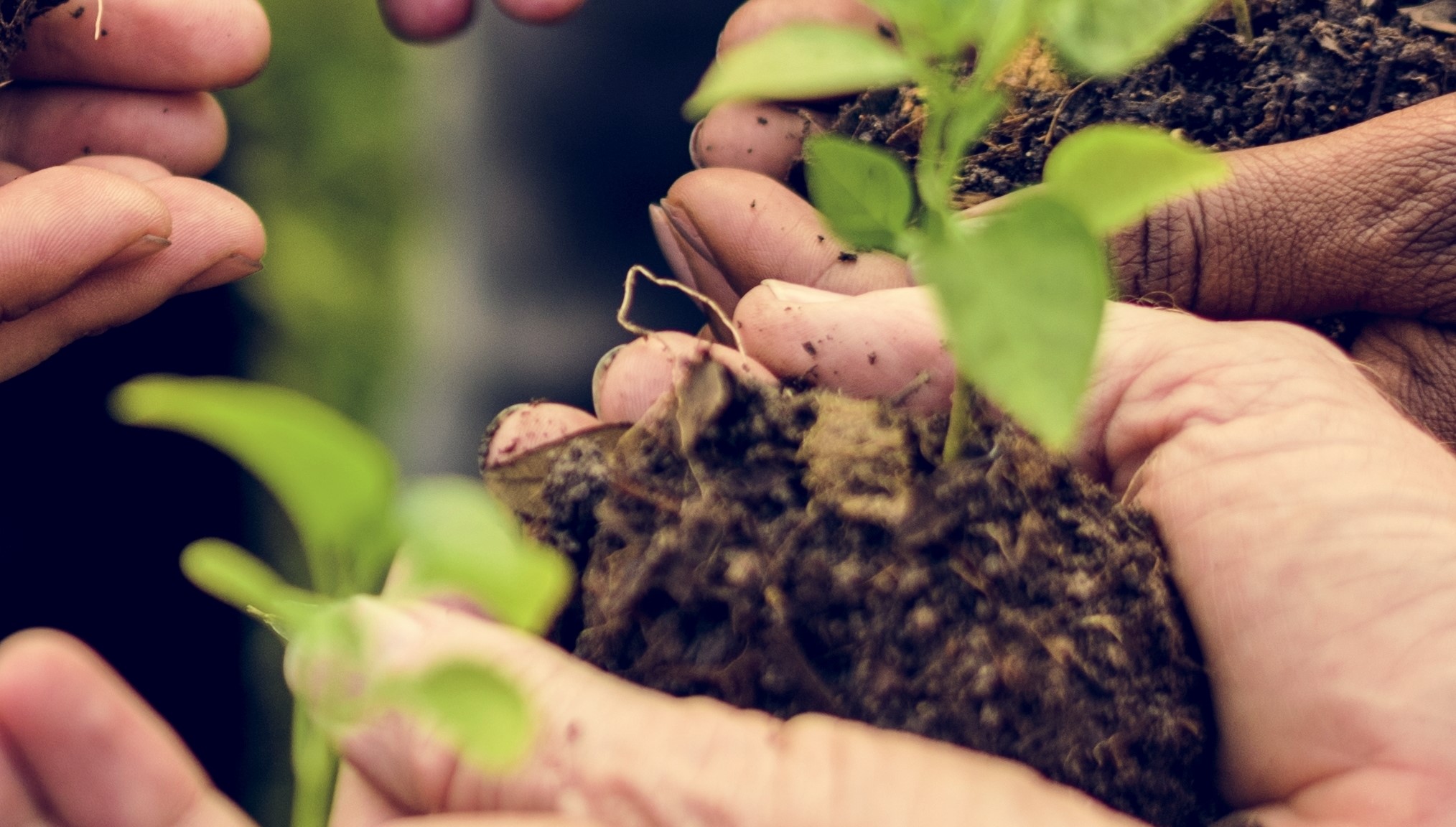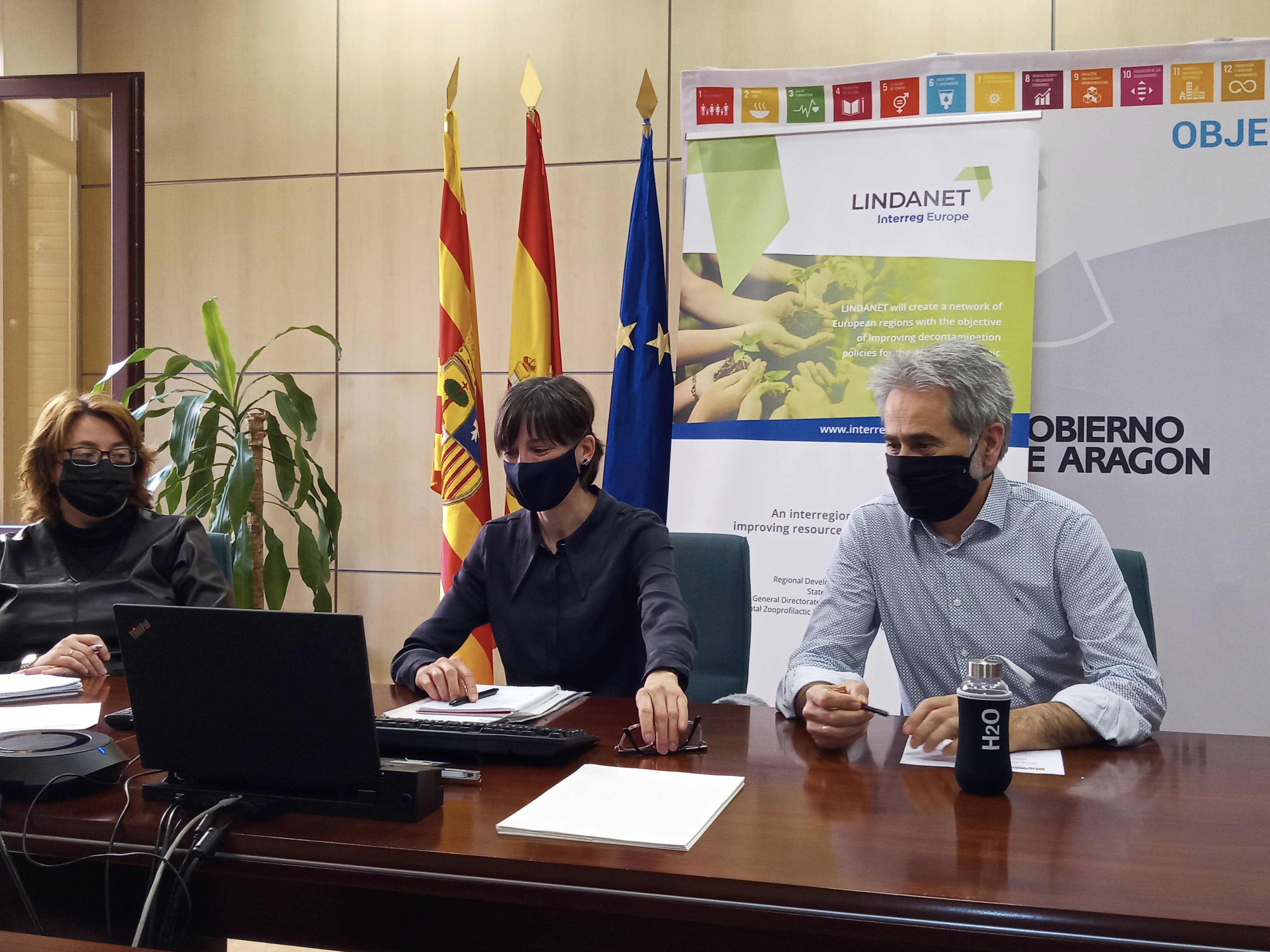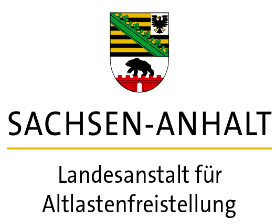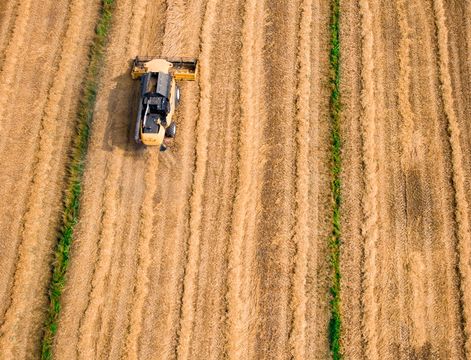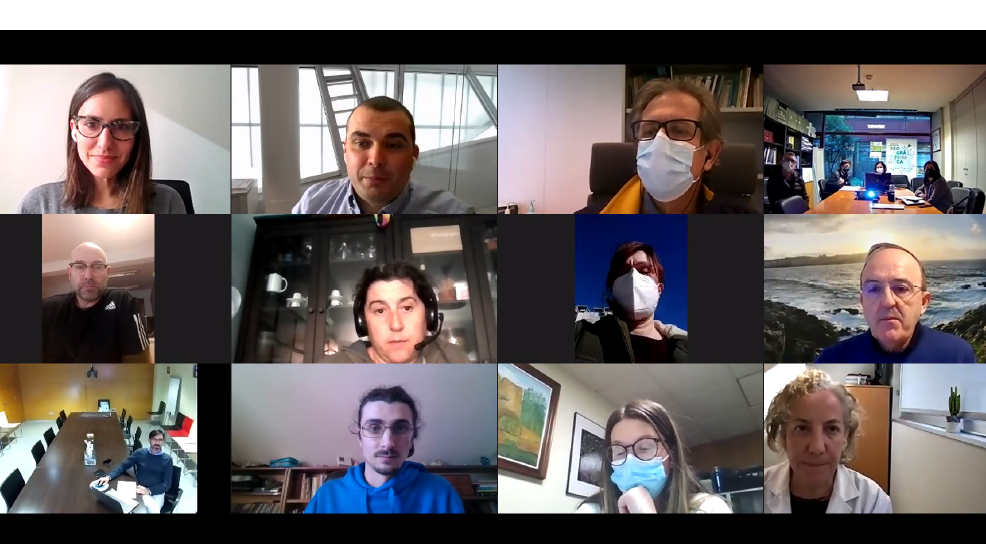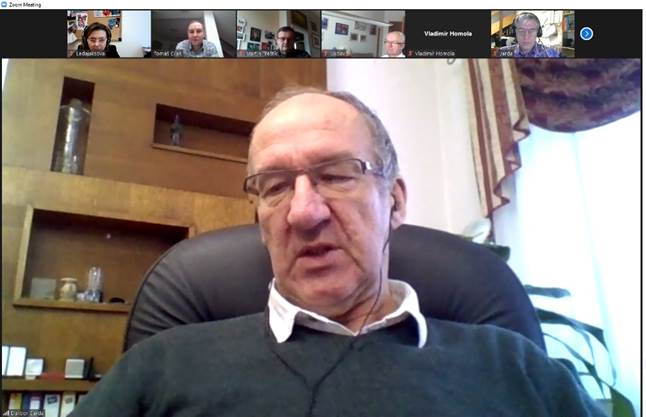The 5th Interregional Workshop of the LINDANET project, initially planned to be celebrated in Galicia region (Spain) under the leadership of the Government of Galicia - General Directorate of Environmental Quality and Climate Change, took place, due to COVID-19 pandemic situation, under a virtual format in the 23rd and 24th of November of 2021, focusing on the Action Plans presentation.
The first session (23rd of November) was devoted to the explanation of the lindane problem situation of Galicia region, as well as to review the progress of the Joint studies being developed within LINDANET project.
Thus, after the welcome by Mª Sagrario Pérez Castellanos, General Director of Environmental Quality, Sustainability and Climate Change of the Xunta de Galicia, a first part related to the history of the lindane situation in Galicia region was presented, focusing on O Porriño area. In this regard, in order to make partners get a general overview, an explanatory video was shared, on which the different stages of the lindane problem were detailed under a sequential approach, from its origin in the early 1940s to the most recent measures that are being implemented today.
Then, it was the time to go deeper in the situation with the intervention of 6 experts in the lindane-related field from different areas. On the one hand, through 3 presentations from consulting companies (EPTISA, APPLUS and GEOCISA) that have developed a series of analysis and studies in the polluted spots, while on the other hand it was the time for the Hydrological Confederation of Miño-Sil and the universities of A Coruña (UDC) and of Santiago de Compostela (USC) to have their say on their respective insights, experiences and recommendations.
After those interventions, a round table was conducted, when the different specialists and the project partners discussed and shared their views on the problem and the potential solutions to lindane problem. In this regard, bio-based solutions have been exposed as one of the most successful and affordable measures to deal with the pollution caused by lindane, as well as other solutions that had been implemented by other regions (such as in the case of Sabiñánigo area in Aragon-Spain).
In the second part of this day, it was time for the review on the progress of the Joint studies being developed within LINDANET project, concretely on the “Action Plans Guidelines”, presented by John Vijgen, the “Situation of research on HCH remediation in EU” by Luis Salvatella from the University of Saragossa, Spain and the “Recommendations on Health and Safety”, conducted by Alicia Sánchez from SARGA.
The second day (24th of November) was devoted to Action Plans of project partners' regions. These plans contain actions linked to the project and deriving directly from the interregional learning process and must be approved by the Joint Secretariat of the INTERREG EUROPE Programme before the end of the first phase of project implementation (31st of January 2022). An action plan is endorsed by the relevant policy responsible project partners. It indicates basic information such as a description of actions, stakeholders involved, timeframe, costs, and funding sources. The actions to be implemented within Action Plan are the basis for phase 2 monitoring of LINDANET project.
Thus, after a first intervention by the lead partner of the project (Government of Aragon) on the most important aspects that plans must meet in order to be approved by the Programme, these documents have been presented by the different project partners.
The series of Action Plans were presented during the 5th ITW meeting, concretely: Aragon Action Plan (SP), Action Plan for the O Porriño area (Galicia)(SP), Action Plan for the region of Saxony Anhalt (DE), Action Plan for South Bohemian Region (CZ), Action Plan for Silesian Voivodeship (PL) and Action Plan for the region of Latium Region – Site of National Interest (SNI) "Sacco River Basin" (IT).
Elena Cano from the Government of Aragon and John Vijgen (IHPA) provided feedback to each of the Action Plans presented by project partners with a series of recommendations in order to make them more likely to be approved by the Programme.
The, after such block related to Action Plans, the lead partners proceeded to update on the project progress and monitoring, highlighting the most important aspects to be addressed for the following months of project implementation.
Finally, the most important conclusions of the two working days of the 5th Interregional Thematic Workshop have been summarised and partners were invited to continue working on addressing lindane pollution problem under a cooperation approach.
